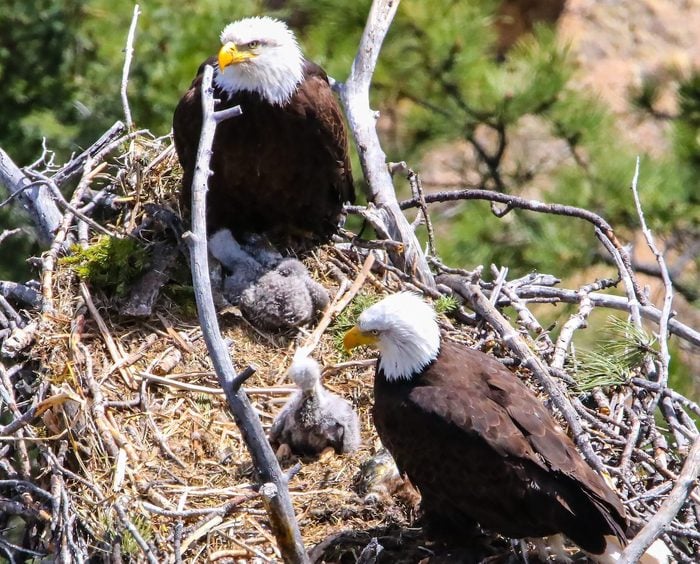 Hand-feeding baby birds is a substitute for parents raising birds, but it does have certain advantages. Hand-raised baby birds usually make better pets, as they have been completely socialized with humans. Hand-raised babies grow up with less fear of humans or other potential dangers such as cats, dogs, and young children.
Hand-feeding baby birds is a substitute for parents raising birds, but it does have certain advantages. Hand-raised baby birds usually make better pets, as they have been completely socialized with humans. Hand-raised babies grow up with less fear of humans or other potential dangers such as cats, dogs, and young children.
Hand-feeding is a huge responsibility and requires time, patience, and commitment. Hand-fed baby birds are entirely reliant on you for everything. Hand-feeding is a job best left for the experienced bird breeder or aviculturist. If you are considering hand-feeding a baby bird, you should contact your local bird breeder or avian veterinarian for help. This handout is designed to provide some basic guidelines on how to hand-feed.
How Long Does It Take for Bird Eggs to Hatch
There are two main methods for laying eggs, and they have an impact on when a bird egg hatches. Before eggs can hatch, they must be incubated. The incubation temperature facilitates the embryo’s development inside the egg.
Altricial species (such as songbirds) are born nearly featherless. These little backyard birds can hatch in as little as 11 to 14 days of incubation. For weeks before they are able to fly, the defenseless hatchlings rely on adults for warmth and food. Common redpoll eggs hatch in about 10 days. It can take up to 16 days for blue jay eggs to hatch.
Precocial species have longer incubation times and lay larger eggs, such as grouse, waterfowl, and shorebirds. Great horned owl eggs hatch in about 30 days. Some hawks and geese can take up to a month to hatch, while large seabirds like albatrosses can take up to 80 days. Hatchlings hit the ground running.
When a female bird lays a clutch of eggs, she might wait to begin incubating the eggs until the clutch is full, allowing the eggs to hatch simultaneously. But after laying their first egg, barn owls start the incubation process. They can lay up to seven eggs in a span of two or three days. As a result, their eggs hatch one at a time, with the first hatchlings being significantly bigger than the others.
Discover the five phases of a baby bird’s life and what a fledgling is.

How Do Birds Build Nests?
Not all bird nests resemble the traditional cup made of interwoven sticks. The architecture of some nests is quite impressive. Along the banks of raging streams, American dippers construct nearly waterproof nests with moss exteriors. Many species include sprigs of particular plants to deter pests. Discover how orioles weave elaborate nests.
Sarah saw meadowlarks creating grass domes with tunnels facing into the prevailing winds to keep nestlings cool on hot summer days while conducting graduate research on grassland birds. Psst: You should only put out this particular bird nesting material.
What should I feed my bird?
There are numerous commercially available hand-feeding formulas for baby birds. Use a single formula until the infant is weaned. Changes in diet may be stressful on the babys digestion. Make sure you speak with your avian veterinarian, a skilled bird breeder, or an aviculturist about dietary options.
FAQ
How often do baby birds eat at night?
Do birds stay with their babies at night?
How long do birds sleep for at night?
How long do baby birds stay in their nest?